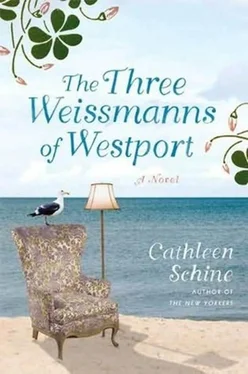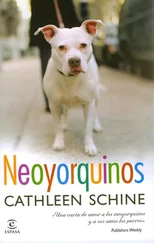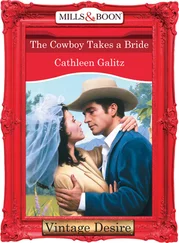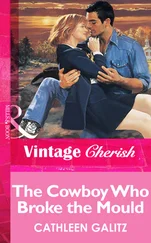Betty laughed to herself. How macabre she had become. A pretty bird on a pretty day! She should be outside in the fresh air marveling at all of nature's wonders, not condemning innocent birds to the diaspora. She put on her sneakers, a jacket, her dark glasses and wide-brimmed sunhat, took a deep breath, and ventured forth.
The waves were uniform and hushed, each gentle white hiss followed by another. She saw some sea glass, a nice large piece, beautiful muted green, but she was too stiff to bend down and pick it up. In the distance she could make out the white sail of a little boat. Perhaps that was Miranda, out sailing in that peculiar Charlotte Maybank's boat with Henry and his mother. Betty had warned her to wear a sweater under her jacket. It was so breezy, and the sun was deceptive. There was still a chill in the air. A few years ago, Betty would not have thought of a sweater. She would have thought only of the exhilarating snap of the sail. She would have been on the boat herself. But those days were gone. Perhaps she would drive downtown and get a cup of coffee at Starbucks. Annie would not approve. Annie thought Betty should make coffee at home and bring it with her in a thermos, but where was the fun in that? Soon the concession would be open at the beach and Betty would be able to get coffee there. It would be summer again, and children would descend on the sand, their mothers, on cell phones, trailing after them laden with beach chairs and buckets. Now, though, there was only a man with an Irish setter whose coat gleamed in the sun. Perhaps she would get her hair colored to match the dog's. She could ask the man for a hank of dog hair and bring it to her colorist.
Slowly, Betty walked back to the house. She had made it a home, with the help of her girls. She had always made a home for them, one way or another, and they for her. But they couldn't live with her forever. They were grown women. And so was she. She wondered if and when she would be going back to her apartment. A woman alone. Homeless as a bird.
She felt awfully tired. Her head began to hurt. Her neck was so stiff. Her head was pounding now. She saw the little cottage and wondered if she would be able take the steps necessary to reach it. One step. Two. She counted. Ten. She was at the cracked concrete stoop. The pain in her head shot into the sky, exploded there, hurtled back down at alarming speed; and again, like the little waves. Step. Step. Thirteen, her lucky number, for she had reached the couch in her house. The couch was beneath her. The pain in her head screamed out loud. There was no one to hear. No one, Betty thought, except me.
Miranda was the one who found her and called 911. She and Leanne had not sailed that day. First they had called Kit using Skype and watched Henry chat with his father. Miranda had worried a little over how she would respond to seeing Kit again, even if it was only through a video chat on a computer. Leanne told him she was there, and he looked a little taken aback, then recovered and said in his typically jaunty way, "A conspiracy. Don't believe everything you hear."
Miranda thought, No, I guess not, but she said nothing, stood out of range of the camera, and watched.
He was just as good-looking as ever, she thought, though his manner, so easy and free, now struck her as fraught with new meaning-it was as if Henry were his nephew or younger brother, a little kid he liked, for whom, however, he had little or no responsibility.
"I was scared," Henry said about seeing a bloody Kit held at gunpoint on TV.
"It was catsup," Kit said. "Isn't that funny? Catsup all over Daddy's face?"
Henry thought that was funny. Then: "Come home," he said.
"Okay, buddy," said Kit. "I will! As soon as I can."
Leanne, standing behind Henry, gave Miranda a significant look.
"I saw that," Kit said. "Listen, I'm working, okay? That's what you were always on me about, so now I'm working, okay?"
"Okay," Leanne said. "Fair enough. Sorry."
Kit sulked for a moment. Was he really thirty-five? Miranda wondered. She looked at Leanne. How old was Leanne? It had never occurred to her to ask or even to wonder.
"As a matter of fact, I have to leave for work right now, okay? It's like an hour drive to the studio…"
Henry threw his father a kiss, and the screen went black.
"How old are you?" Miranda asked suddenly.
"Thirty-eight," Leanne said. "Why?"
"Eight," Henry said, holding up all his fingers.
"I'm forty-nine," Miranda said.
Leanne tilted her head thoughtfully, then said, "So that's all right, then."
She lifted Henry up, gave him a twirl, and said they should go on an adventure, a bike adventure to Devil's Den.
They pedaled along the winding, hilly roads that led to the nature preserve in Weston. Henry was strapped in his seat behind Leanne. Rushing down a hill, Miranda passed the other two, stood on the pedals as she had as a child, and coasted. Speed, she thought, is the glory of going forward.
"Bankruptcy definitely agrees with you," Leanne said, laughing, when they reached the bottom of the hill.
The papers from the lawyers had arrived the day before. "Belly up," said Miranda. "That's me."
Henry looked curiously at her belly.
"I'm free," Miranda said.
They followed the steep path to a leafy spot closely sheltered by tall skinny birch trees. Miranda put her hand on the white trunk of one of them. "The most beautiful tree." She felt a surge of emotion, this same surge she felt so often now. Maybe it was menopause.
"I wonder if I'm starting menopause. Everything makes me want to…"
"What?" Leanne asked.
Miranda threw herself to the ground and rolled in the leaves, breathing in the damp of spring, the dust of last autumn. She lay on her back staring up at the blue sky just beyond the lacy canopy.
"Everything makes me want to weep with happiness," she said.
Would that it were menopause, she thought. She could sweat it out and emerge in a few years a calmer person with somewhat brittle bones. But this? This calm, deep satisfaction? This was madness. This sharp, painful sense of joy, of gratitude that felt like an inhalation of fresh, cool air. This soft exhalation that felt like peace.
Leanne swept a leaf from Miranda's face.
Peace? Miranda bit her lip. If peace burns, this is peace, she thought. If peace makes you tremble, this is definitely peace. If peace is feeling calm one minute, tortured the next, if peace is war, then, then, and only then is this peace.
She stared up at the canopy of leaves, the sun drifting down in dappled warmth. Why couldn't she just have a friend like everyone else? Maybe Annie was right-she was just a drama queen, couldn't live without it.
"Randa?"
She turned to Leanne and opened an eye. Oh, what a mess. "Yeah?"
Leanne twisted a stick in her hands as if she were about to start a fire. "Oh, nothing," she said.
Miranda rolled onto her back again. Leanne had called her Randa.
Suddenly a large little face hung over Miranda, its cheeks streaked with dirt.
" Now you're belly up," the little face explained.
When Miranda got back to the cottage late that afternoon, she found her mother writhing in pain on the couch.
"I can't turn my neck," Betty whispered. "My head is exploding. It keeps exploding."
The EMTs were volunteers. She recognized one-a blond girl she sometimes saw running on the beach. She followed the ambulance in the Mercedes, though later she had no memory of the drive.
"It's meningitis," Miranda told Annie over the phone.
"What?"
"No, it's okay, it's not the kind that kills you."
"Just the kind that makes you wish you were dead," Betty whispered from her hospital bed. "Please stop talking, darling."
But she did not want to be dead at all. She wanted to go back in time, not very far, not to when she was young, not to when she was still happily married to Joseph, just back to that afternoon before she went for a walk on the beach, to that moment when she stood looking out the kitchen window and saw the goldfinch fluttering through the maple leaves. She had been so unfair. She wanted to go back in time, to look out her kitchen window, to see the movement of the little bird, the flash of yellow and flash of black, as it rustled among the leaves, and she wanted to apologize. To the bird. It had been a pretty bird on a pretty day. She should never have doubted either one.
Читать дальше












